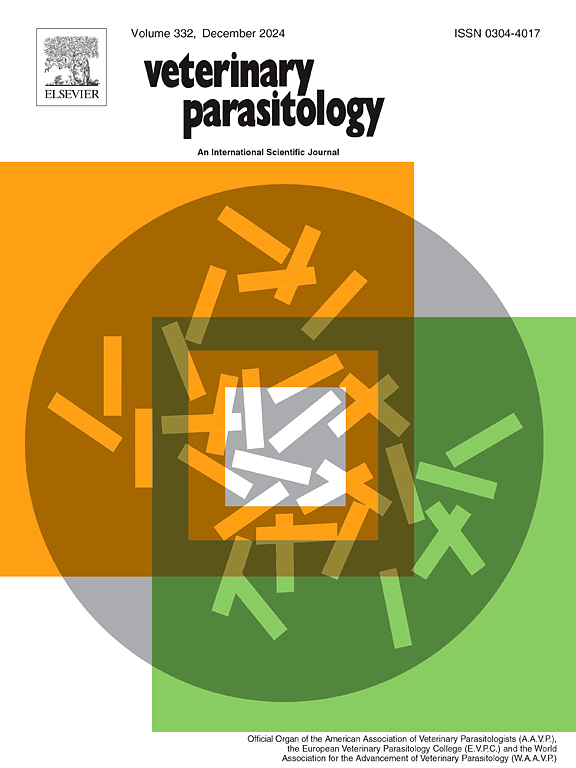了解全球联系:调查猪肉出口与旋毛虫病之间的关系
IF 2.2
2区 农林科学
Q2 PARASITOLOGY
引用次数: 0
摘要
一个国家出现旋毛虫病可由于安全考虑导致贸易限制和产品封锁。牛海绵状脑病就是一个例子,对地方性疾病的恐惧阻碍了国与国之间的贸易。这种对流行病的恐惧往往导致贸易壁垒,阻碍经济交流,突出了有效的预防和控制战略对保持市场准入和保障公众健康的重要性。本研究的目的是探讨猪肉出口量与旋毛虫病报告病例之间的关系。为此,我们将经济和卫生来源的数据结合起来,创建了一个独特的数据库。根据国际贸易引力模型制定了一种计量经济学方法,以估计旋毛虫病暴发对阿根廷、智利、保加利亚和罗马尼亚向其双边伙伴出口的影响。该小组是平衡的,估计中包括了特定时间和国家的固定影响。结果表明,旋毛虫病疫情对来源国和目的地国之间的贸易产生负面影响,具有高度统计学意义。无论是作为世界贸易组织的成员,还是两国之间活跃的自由贸易区的存在,都显示出预期的正系数。鉴于这些发现,考虑到消费者对其消费的产品可能感染的敏感性,以及这些对公司和政府做出的全球贸易决策的影响,考虑对这类疾病进行适当管理是至关重要的。本文章由计算机程序翻译,如有差异,请以英文原文为准。
Understanding the global connection: Investigating the association between pork meat exports and trichinellosis
The presence of trichinellosis in a country can result in trade restrictions and product blockages due to safety concerns. This scenario is exemplified by the case of bovine spongiform encephalopathy, where fears of endemic diseases hindered trade between nations. Such endemic fears often lead to trade barriers and impede economic exchanges, underscoring the importance of effective prevention and control strategies to maintain market access and safeguard public health. The aim of the present study was to explore the relation between the volume of swine meat exports and reported trichinellosis cases. To this end, we combined data from economic and health sources, to create a unique database. An econometric approach based on the gravity model of international trade was developed to estimate the effects of trichinellosis outbreaks on exports of Argentina, Chile, Bulgaria and Romania, to their bilateral partners. The panel is balanced, and both time and country specific fixed effects were included in the estimation. Results suggest that trichinellosis outbreaks negatively impact trade between the origin and destination countries with a high statistical significance. Both being a member of the World Trade Organization and the presence of an active Free Trade Area between both countries, show a positive coefficient as expected. Given those findings, it is of upmost importance that a proper management of this type of disease is considered, due to the sensitivity consumers have to a possible infection from the products they consume, and how these impacts on the global trade decisions made both by companies as governments.
求助全文
通过发布文献求助,成功后即可免费获取论文全文。
去求助
来源期刊

Veterinary parasitology
农林科学-寄生虫学
CiteScore
5.30
自引率
7.70%
发文量
126
审稿时长
36 days
期刊介绍:
The journal Veterinary Parasitology has an open access mirror journal,Veterinary Parasitology: X, sharing the same aims and scope, editorial team, submission system and rigorous peer review.
This journal is concerned with those aspects of helminthology, protozoology and entomology which are of interest to animal health investigators, veterinary practitioners and others with a special interest in parasitology. Papers of the highest quality dealing with all aspects of disease prevention, pathology, treatment, epidemiology, and control of parasites in all domesticated animals, fall within the scope of the journal. Papers of geographically limited (local) interest which are not of interest to an international audience will not be accepted. Authors who submit papers based on local data will need to indicate why their paper is relevant to a broader readership.
Parasitological studies on laboratory animals fall within the scope of the journal only if they provide a reasonably close model of a disease of domestic animals. Additionally the journal will consider papers relating to wildlife species where they may act as disease reservoirs to domestic animals, or as a zoonotic reservoir. Case studies considered to be unique or of specific interest to the journal, will also be considered on occasions at the Editors'' discretion. Papers dealing exclusively with the taxonomy of parasites do not fall within the scope of the journal.
 求助内容:
求助内容: 应助结果提醒方式:
应助结果提醒方式:


